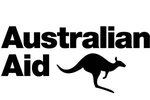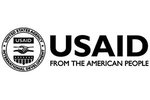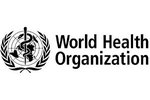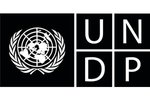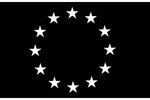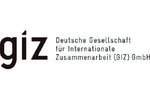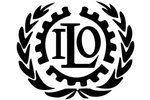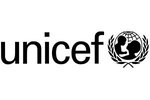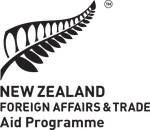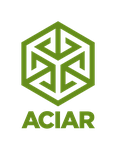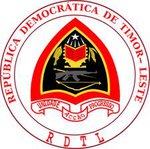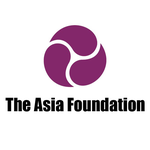Catalpa News | People committed to doing good, better.
Catalpa Quarterly Newsletter | September 2022
This month we welcome some new talent to the Catalpa team.
With over 30 years experience in international program management across Australia, Asia, Africa and the Pacific, Karen Hill has hit the ground running in her new role as Partnerships & Growth Manager.
To learn more about Karen and what's been happening at Catalpa, read on! 👇🏿
Implementing technology the right way: maintenance & support
Since the launch of the Haroman program in Timor-Leste, we’ve been monitoring and refining the mobile platform built to provide training for health workers.
In the world of tech development, we call this phase support and maintenance. We plan this phase to test the digital product and its functionalities with users in their daily routines, which in turn, allows us to make continuous improvements to the technology.
It is an essential part of the technology development process and is used to ensure the platform is performing as originally designed and that it continues running smoothly.
As health workers began to use Haroman’s on-the-job learning tools to complete courses, we were able to quickly identify and resolve any technical bugs, improve their experience and perform checks on the performance of the system while ‘live’.
We also use information on platform usage such as completion rates, work flows, and time spent using modules to learn how users are interacting with the technology, where they’re potentially facing challenges, or not behaving as expected.
The support and maintenance period is an important step in any technology implementation. It provides time to review how the technology is meeting project aims and the needs of users, and make refinements to maximise both your investment and development outcomes.
Thanks to our Haroman partners Timor-Leste Ministry of Health, Maluk Timor and the Partnership for Human Development, and Australian Aid via the Indo-Pacific Centre for Health Security
Science learning powered by the sun
Ten schools across Solomon Islands and Vanuatu have been delivered portable solar power kits to support their participation in the Pacific eLearning Programme.
The kits will make it easier to use the supplied projectors, as well as allowing teachers to charge their mobile devices to access the Pacific Learn app.
Many participating schools are based in remote areas and are not connected to the electricity grid. Others, in Vanuatu, still do not have power as a result of Cyclone Harold.
“The solar panels make a huge difference to setting up the science classroom,” said Alison Paul, Year 10 Science Teacher, Matevulu College, Vanuatu “Our school only has powerpoints in the subject department rooms. I used to have to plug in a power board and pull metres of extension cord to my classroom”
“The solar kits are much safer and we can also use them to demonstrate renewable energy when we are teaching. Of course we are lucky that the sun is always shining here!” Charles Tetepe, Deputy Principal, Tuvaruhu Community High School, laughed.
Teachers can access a ‘Solar Kit Set Up’ course within the Pacific Learn app which means the information is easily at hand when they need it.
To learn more about the Pacific eLearning Programme, check out this recent article from the Samoa Observer.
Thanks to our partners MFAT, Governments of Vanuatu, Solomon Islands, Samoa and Cook Islands, USP, Nanogirl Labs and Wintec
Peer reviewed & published: International Education Journal: Comparative Perspectives
Catalpa education specialists Artila Devi and Ligia Guterres recently published their insights on edtech programs in International Education Journal: Comparative Perspectives.
The article titled Implementing sustainable EdTech projects in Small Island Developing states: Strategies, challenges and reflections draws on the authors’ comparative experiences implementing edtech programs in Timor-Leste vs Pacific Islands.
With a focus on building local in-country teams to implement our programs, it’s so important that we share the challenges, successes and insights gained while implementing programs and their supporting technology. Take a read and let us know what you think!
Introducing Openly: An information management system for better decision making
With versatile applications, Openly has already been recognised as a ‘game-changing’ aid information management system, is being used to track regional development in PNG, and is facilitating multi sector action on malnutrition in Timor-Leste. Learn how Openly can help you.
A speedy introduction to Karen Hill
WELCOME KAREN! TELL US ABOUT YOUR WORK EXPERIENCE
I’ve worked in Australia, Asia, Africa and across the Pacific region in a wide range of roles including country, regional and head office levels for commercial contractors, NGOs and as a consultant to government and institutional donors.
My work has covered health, community development, rural development and food security; water, sanitation and hygiene; education; gender equality; disability; law and justice; governance; civil society; child protection; child rights and humanitarian and emergency assistance.
TELL US ABOUT YOUR NEW ROLE
As Partnership and Growth Manager I will connect and work closely with our partners and potential partners to increase the positive impact Catalpa can make in the Asia Pacific region.
WHAT WAS YOUR FIRST & LAST JOB?
First job: Waiting tables in my family’s pub.
Last job: Consulting for UNFPA to develop a Resilience Framework for the Government of Pakistan to maintain minimum service levels for sexual and reproductive health and rights, gender based violence and youth in the event of a disaster.
ANY HIDDEN TALENTS?
I am an open water swimmer and make jewellery.
ARE YOU A THINKER OR A DOER?
Can I think about it? Doer.
WHERE ARE YOU BASED?
Melbourne
Thanks for reading! To receive our quarterly newsletter simply sign up on the form below. You might also like to check out our current job vacancies.
